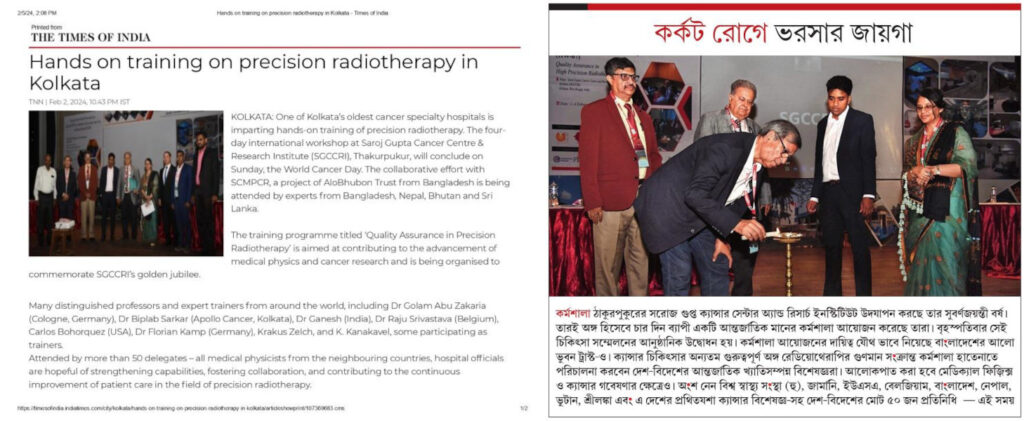SCMPCR’s Hands-On Training Provides New Insights
(Nahida Sultana, Medical Physicist, Alo Bhubon Trust (Alo-BT))
Modern medical technology and sophisticated physics ideas are combined in medical physics to diagnose and cure illnesses. It is essential to the advancement of accurate radiation therapy, complex imaging methods, and cutting-edge nuclear medicine applications. Medical physics dramatically improves patient care and outcomes by increasing the precision and effectiveness of medical interventions. Expert medical physicists are essential to the best possible utilization of state-of-the-art radiation technology and accurate dosimetry in advanced cancer treatment. Their knowledge improves treatment accuracy, resulting in better patient outcomes and fewer adverse effects.
GLOBO-CAN 2012 states that approximately 57% of cancer cases globally are found in low- and middle-income countries (LMIC). Radiotherapy is a key part of modern cancer treatment and necessitates significant financial investment, skilled professionals in various fields, advanced equipment, and specific organizational structures both internally and externally.
South Asia Centre for Medical Physics and Cancer Research (SCMPCR) in collaboration with the Saroj Gupta Cancer Centre and Research Institute (SGCCRI), recently held a practical workshop titled “SCMPCR HW 07: Quality Assurance in High Precision Radiotherapy.” Experts in medical physics and oncology came together for this four-day symposium in Kolkata, West Bengal, India, from February 1–4, 2024, to expand their knowledge of cutting-edge radiation treatments for better cancer treatment outcomes.
The workshop, meticulously designed for medical physicists, has received accreditation from the European Board for Accreditation in Medical Physics (EBAMP). This recognition positions it as a Continuing Professional Development (CPD) event at the European Qualifications Framework (EQF) Level 7. The program encompasses 13.5 hours of immersive educational content, comprising 7.5 hours of hands-on practical workshops and culminating in a rigorous final examination. In accordance with the EBAMP guidelines, this educational endeavor corresponds to 43 CPD points. The event bears the distinctive Accreditation Code: APP00256, underscoring its significance within the field of medical physics (Figure 1).
Out of the 44 participants, 13 were from Bangladesh, 25 were from India, 5 were from Nepal, and 1 was from Sri Lanka. They participated in extensive, practical training centered on Quality Assurance in High Precision Radiotherapy, where they acquired important abilities and knowledge to improve their clinical procedures.

The event was inaugurated by Prof. Dr. Hasin Anupama Azhari, Director, SCMPCR, and Ms. Fenella Anthony, Senior Coordinator of Research, SGCCRI. Dignitaries were invited, and a flower bouquet was presented. The inauguration proceeded with the lighting of the lamp. A documentary and PPT were showcased, and Chief Guest and special guest speeches were given. The event concluded with a vote of thanks by Mr. Subhas Halder, Medical Physicist and RSO, SGCCRI (Figure 2).
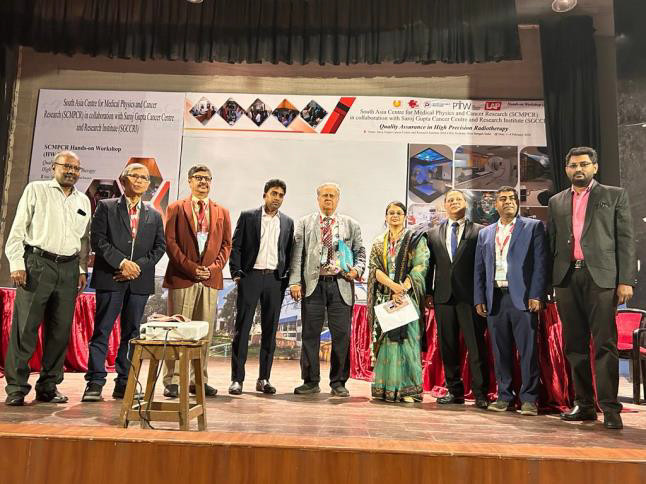
The program covered topics of Quality Assurance: TG-100 way, Motion Management in Radiotherapy, Role of Surface Guided Radiation, Therapy in Modern Radiotherapy Techniques, Automated QA, LAP GmbH – Introduction Quality Control Equipment, PTW Octavius 4D 1600 systems, SRS/SBRT Patient Specific QA, Patient Specific Quality Assurance, Rotational Motion Correction in Precision Radiotherapy, In-vivo dosimetry with RadCalc’s 3D EPID module: commissioning and first clinical results, End to End verification in SRS/SBRT- Ruby Phantom etc. in theoretical lectures (Figure 3) and practical training sessions (Figure 4).
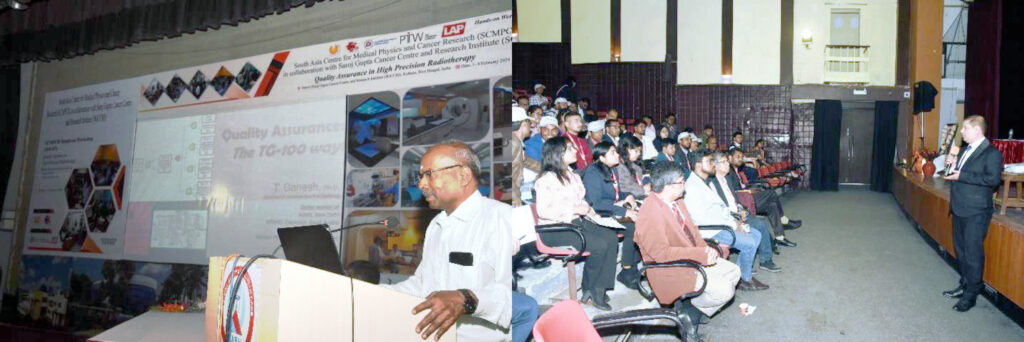
A discussion and question period (Figure 5) on the last day of the workshop gave attendees the chance to ask questions and get further insight into the topics covered. Following the workshop, there was a feedback session where participants could discuss their insights and ideas for future workshops.
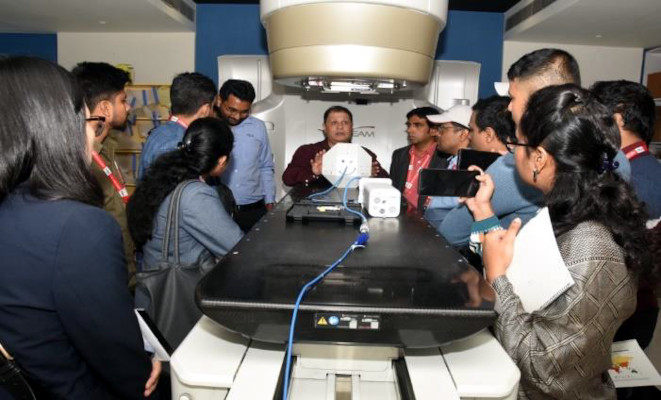
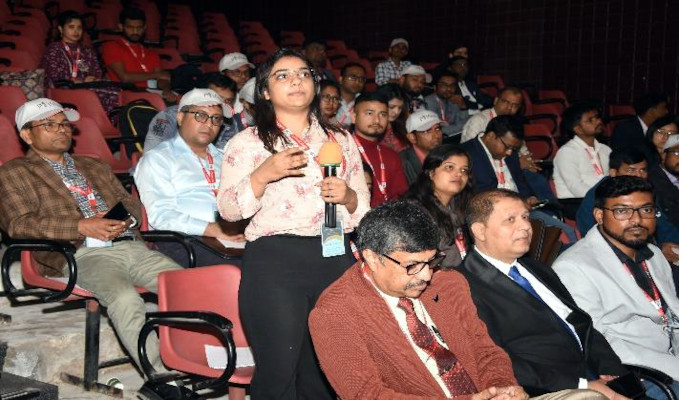
To receive the certificates with the CPD points, an assessment examination (Figure 6) was conducted for all the participants to evaluate the course learning outcomes. Participants were fully immersed in the complexities of quality assurance procedures from both a conceptual and practical aspect through a combination of theoretical seminars, real-world demonstrations, and hands-on exercises. A captivating Bangla book for the extraordinary contributions of Professor Dr. Zakaria in the field of medical physics title “Professor Zakaria in the Memories of His Admirers:Pioneer of Medical Physics in Bangladesh” had been gifted to Dr. Apurba Kabashi, Medella Karkinos Oncology Institute, Kolkata (Figure 7).

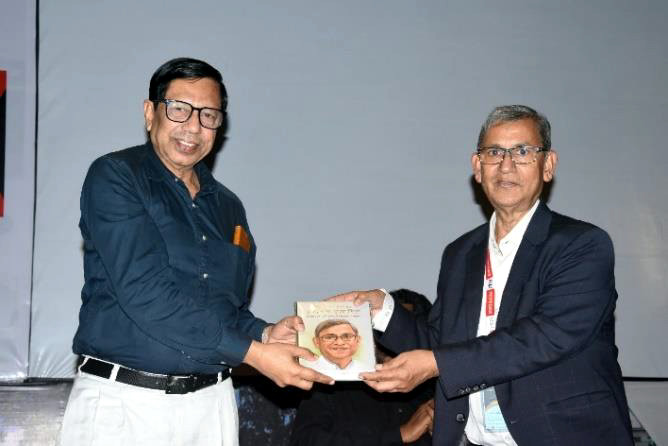
The workshop’s focus on experiential learning via practical exercises gave the participants priceless knowledge and understanding that they may use right away in their line of work.
The Times of India and Eisamay published news about the workshop on February 02, 2024 (Figure 8).
